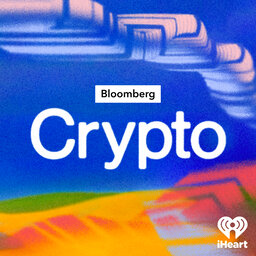Can the Blockchain Have a Good Use Case for Gaming?
The gaming industry is bigger in revenue terms worldwide than the film and television industries combined. But it also continues to deal with hard and necessary conversations over who benefits from those profits, over work and labor conditions, and (as always) about intellectual property. Adding blockchain and NFT's might just complicate things a bit more. Bloomberg reporter Cecilia D'Anastasio joins this episode to discuss why and how crypto is showing up in video games.
 Bloomberg Crypto
Bloomberg Crypto


